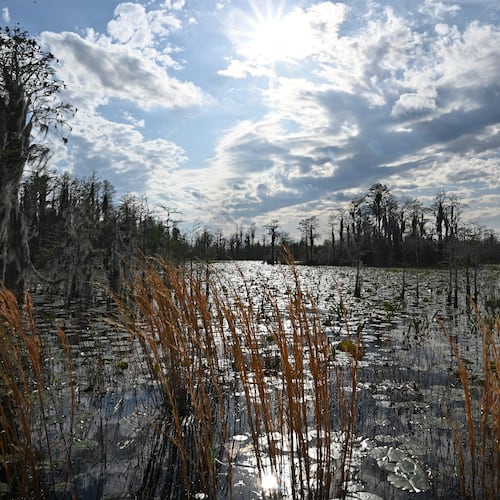A prohibition that stopped Fulton County from expanding its wastewater treatment capacity has been lifted.
While the county was under the restriction, it could not plan for future growth in North Fulton that would require more treatment capacity, and it could not improve the technology at two wastewater treatment facilities, as had been planned. The restrictions delayed work at the Big Creek and Little River treatment facilities for nearly three years.
The problem stemmed from the 2012 closure of the Cauley Creek Water Reclamation Facility in Johns Creek.
Fulton County commissioners opened a new treatment plant nearby, and decided they no longer wanted to pay to keep Cauley Creek open. It had been providing treated wastewater to irrigate golf courses and churches in Johns Creek.
But when the county transferred the Cauley Creek business to existing water treatment plants, they kept charging the golf courses the lower rate for treated wastewater, while giving them water that was suitable for drinking.
That water should have cost seven times as much. Charging too little made the county out of compliance with conservation requirements from the Metropolitan North Georgia Water Planning District's water conservation plan. The lack of compliance caused the prohibition on expansion.
Negotiations to raise the rates at five golf courses, two churches and the city of Johns Creek are ongoing, Fulton County manager Dick Anderson said. In the meantime, Anderson said it was “gratifying” to be able to move forward with the planned expansions.
In May, right before its director retired, Fulton County received a letter from the Environmental Protection Division lauding its “good faith effort to comply” with the requirements it had been breaking. It allowed their expansion applications to again go forward.
Fulton applied in mid-June to re-initiate the process for expansion, which it started a decade ago.
It will takes months before the EPD and the county approve any plant expansion plans, and years before they will be completed. But if the expansions are approved, Anderson said, they should be able to handle North Fulton’s capacity needs for 20 years.
Without the plant expansions, cities in North Fulton might be limited in their ability to approve commercial and residential development projects.
Gail Cowie, with the Georgia Environmental Protection Division, said of the 15 counties and 92 cities that are members of the district, Fulton is the only one to have been out of compliance.
“I think it was a very significant step, to accomplish this,” she said.
The county wants to expand the capacity of Little River from 1 million gallons per day to 2.6 million gallons per day. That treatment facility runs at capacity most days, Clark said, and has been under a moratorium for new service since 1992.
Big Creek, which has the capacity to treat 24 million gallons a day, would be able to treat 38 million gallons per day. At peak usage, 22 million gallons per day are treated at the facility.
To charge the irrigation rate of 70 or 75 cents per 1,000 gallons for drinking water — which costs an average of $5.80 cents per 1,000 gallons — discourages conservation and sustainability, Cowie said.
The district limited Fulton’s expansion as a way to force compliance, and applications to expand Big Creek (first made in 2006) and Little River (first made in 2010) were halted until they raised the rates to former Cauley Creek customers.
“It’s been a long row to hoe,” Anderson said.
Fulton County was able to divert some wastewater to Cobb County to be treated, and the delay in expanding the plants has had no adverse impact on the area’s ability to grow, said David Clark, the county’s director of public works. But Fulton has not been able to be as proactive as it would have liked, Clark said.
“We would have liked to have both plants operational by now, in an ideal world,” he said.
About the Author
Keep Reading
The Latest
Featured




